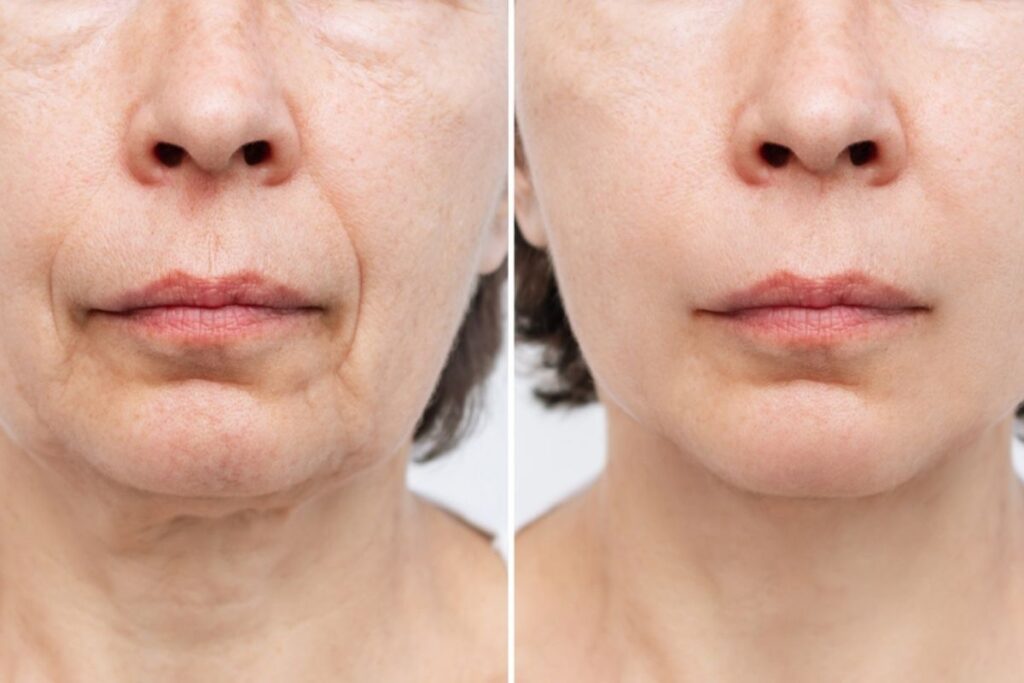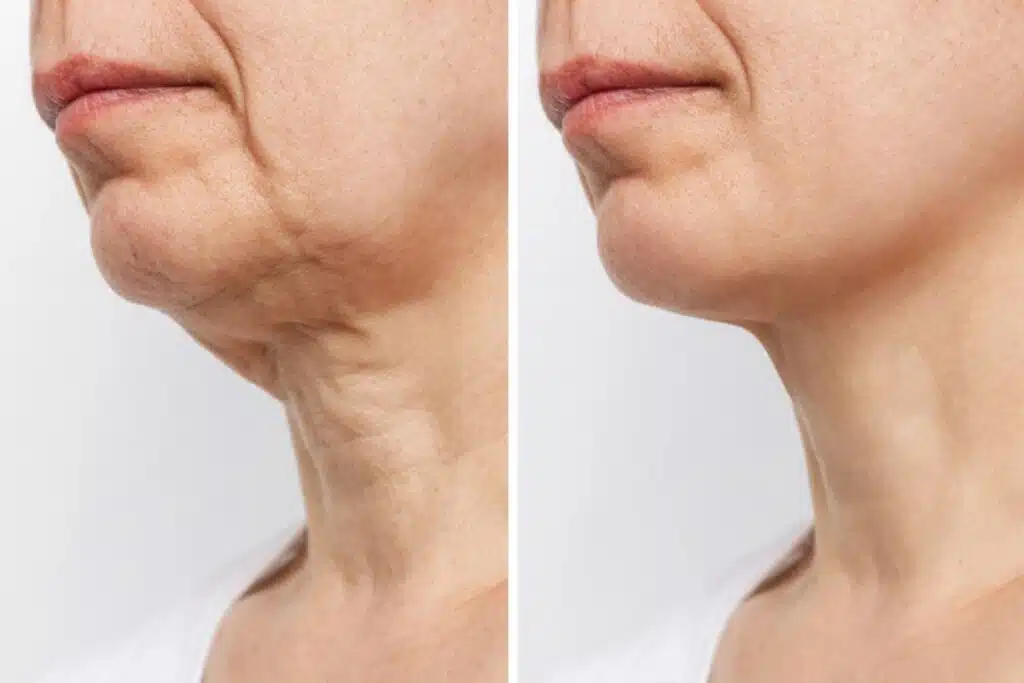When a board-certified plastic surgeon does a facelift, it effectively tackles saggy, loose, or extra skin to make your face look better. This cosmetic surgery, whether it’s a mini facelift or a deep plane facelift, tightens your skin and the layers underneath to give your face a youthful shape again.
However, recovering from a facelift takes time. The healing process usually spans from a few weeks to several months, with noticeable progress each week. Proper post-operative care is crucial during this period to ensure smooth healing and the best results.
In addition to traditional recovery methods, using natural remedies might speed up the healing process and offer extra benefits.

Natural Strategies to Enhance Facelift Recovery
- Post-facelift care, including rest, incision care, and a balanced diet, is crucial for smooth healing and optimal results.
- Cold compresses, aloe vera, and essential oils like lavender and frankincense can reduce swelling and promote skin healing.
- Herbal infusions such as chamomile and arnica have anti-inflammatory properties that aid in soothing skin and speeding up recovery.
- A nutrient-rich diet with supplements like Vitamin C and Zinc supports collagen production and accelerates the healing process.
- Ensuring adequate rest, staying hydrated, and gradually resuming activities enhance overall facelift recovery and skin rejuvenation.
The Importance of Post-Facelift Care
Post-facelift recovery is crucial for skin cell regeneration, tightening loose skin, and enhancing skin tone. During this time, deeper layers of facial skin adapt to new contours, reducing excess skin and addressing laxity. For at least the first week post-surgery requires rest, avoidance of strenuous activities, and attention to incision care, medication, and a balanced diet. Incorporating natural remedies can expedite healing and boost recovery.
Facelift Surgery Healing
Cold compresses applied to the treated area can help soothe skin and reduce swelling, while topical treatments such as aloe vera and essential oils can help strengthen connective tissue and smooth out deep wrinkles. Proper nutrition is key for a speedy recovery and to achieve a tighter-looking facial skin tone after facial plastic surgery. Used in combination with post-operative care, natural remedies can support a positive outcome and accelerated healing process.

Role of Herbal Infusions in the Facelift Recovery Process
Herbal infusions with anti-inflammatory and healing characteristics, such as chamomile, calendula, and arnica, can help with facelift recovery. These can be taken as teas or applied topically to minimize swelling, speed up wound healing, and soothe the skin. However, you must check with Dr. Ember Ewings before incorporating any new substances into your healing routine.
Healing Boost with Essential Oils
Essential oils, such as lavender, frankincense, and helichrysum, can also aid in facelift recovery. These oils are recognized to have anti-inflammatory, antibacterial, and skin-regenerative qualities. Using these oils in a diffuser or topically (diluted in a carrier oil and as directed by your doctor) can assist improve healing, reduce swelling, and minimize scarring.
Are You Ready For A Consultation?
Join our satisfied clients who’ve experienced safe, effective treatments
Nutritional Enhancements for Facelift Surgery Recovery
Nutrition plays an important role in facelift recovery. A balanced diet rich in nutrients that promote collagen production will help your skin appear and feel younger. Proper diet can help shorten recovery time, allowing patients to resume normal activities far sooner than with typical cosmetic surgery alone. Eating a well-balanced diet and using dietary supplements like Vitamin C and Zinc can assist to speed up the healing process while also giving the body with the nutrition it requires to maintain a healthy, vibrant complexion.
Topical Natural Remedies for Facelift Recovery
During facelift recovery, topical application of natural ingredients like aloe vera and manuka honey can aid healing. Aloe vera can soothe and reduce skin redness and swelling, while manuka honey promotes faster healing and lowers infection risk. Always consult your doctor before applying new substances to the incision area.
Effective Lifestyle Tips
Adopting certain lifestyle habits can further enhance your facelift recovery. These include ensuring adequate rest, staying well-hydrated, and gradually resuming activities as per your doctor’s instructions.
Emphasizing Rest
During the healing process, rest is essential. It helps your body spend more energy on healing, lowering the chance of problems. Avoid strenuous activities for at least three weeks after surgery, or until your doctor permits you. Regular light activity, like as walking, can help with healing by increasing blood flow.
Importance of Hydration
Staying hydrated is necessary for complete recovery. It helps to keep skin elasticity, promotes wound healing, and eliminates toxins from the body. Unless directed differently by your doctor, drink plenty of fluids.

Natural Remedies Enhancing Facelift Surgery Recovery
Although conventional post-operative care is necessary for a complete recovery from a facelift, alternative treatments can offer extra advantages. These remedies have the potential to improve overall recovery, decrease swelling and inflammation, and accelerate healing when taken appropriately and by physician instructions.
Contact today the Plastic Surgery Clinic of Eau Claire for an appointment with a facelift expert, Dr. Ember Ewings. She will exceed your expectations.
Natural Remedies Facelift Recovery Frequently Asked Questions
Natural remedies such as aloe vera and manuka honey may complement typical facelift recovery methods by alleviating post-operative symptoms such as swelling and irritation and potentially speeding healing. Essential oils like lavender and chamomile can aid with post-operative stress. These treatments should supplement, not replace, regular post-operative care.
After a facelift, the start time for natural remedies post-facelift varies. Consult your doctor before adding new substances to your recovery regimen. Topical applications like aloe vera or manuka honey should only be used once the wound has closed and with a doctor’s approval. Herbal infusions and nutritional enhancements can be incorporated sooner, provided they don’t interfere with prescribed medications.
While many natural ingredients can help with recovery, it is wise to exercise caution. Some patients may have allergies or sensitivities to certain substances, which could exacerbate inflammation or cause other adverse reactions.
For example, while essential oils might have medicinal advantages, they should always be diluted before use and avoided entirely by persons with sensitive skin. Similarly, some herbal infusions can interfere with prescription drugs.
Certain natural remedies, such as aloe vera and essential oils, have been reported to minimize scarring by promoting skin regeneration and healing. However, their effectiveness can vary from person to person and should not be relied upon as the sole treatment for scar reduction.
Traditional scar management strategies, such as silicone sheets or gels, are generally more effective and should be used as the primary scar reduction method. Natural remedies can be used as a supplementary treatment, but always under the guidance of a healthcare professional.


